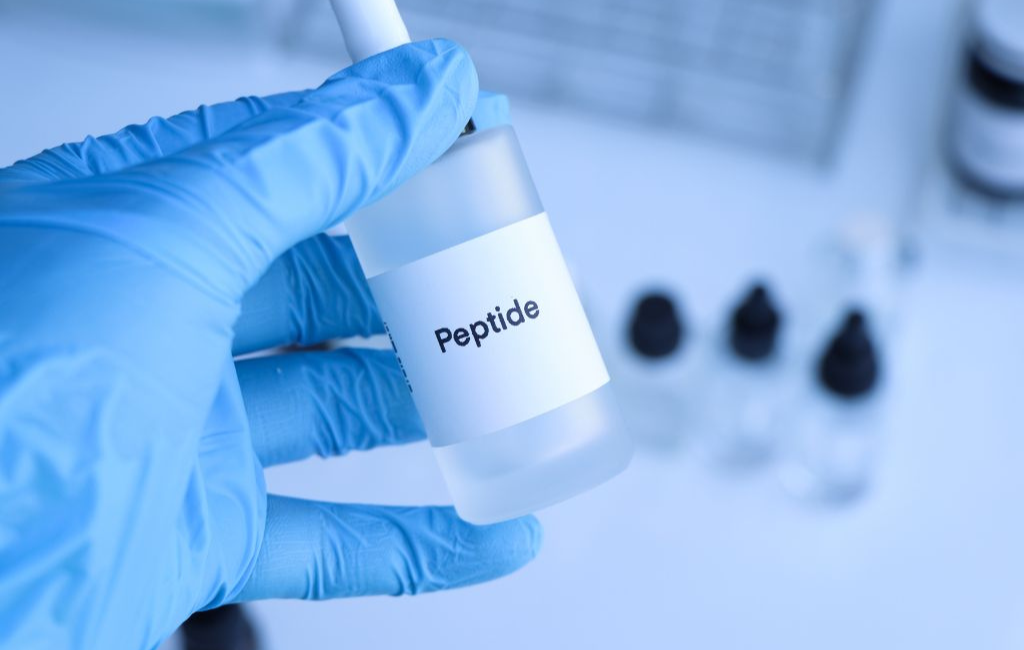Peptides for Improved Muscle Tone
Peptides have gained significant attention in the fitness and bodybuilding communities for their potential to enhance muscle tone and overall physical performance. These short chains of amino acids, which are the building blocks of proteins, play a crucial role in various biological processes. This article explores the science behind peptides, their benefits for muscle tone, and how they can be integrated into a fitness regimen.
Understanding Peptides
Peptides are composed of two or more amino acids linked by peptide bonds. They are smaller than proteins and can easily penetrate the skin and intestines, making them effective in various therapeutic applications. In the context of muscle building, peptides can stimulate the release of growth hormone, enhance muscle repair, and improve endurance.
Types of Peptides
Several types of peptides are popular among athletes and bodybuilders:
Growth Hormone Releasing Peptides (GHRPs): These stimulate the pituitary gland to produce more growth hormone, which can lead to increased muscle mass and reduced body fat.
Insulin-like Growth Factor-1 (IGF-1): Known for its anabolic effects, IGF-1 promotes muscle growth and repair.
CJC-1295: This peptide increases growth hormone levels without affecting appetite, making it a favorite for those looking to improve muscle tone.
BPC-157: Known for its healing properties, BPC-157 aids in muscle recovery and reduces inflammation.
Benefits of Peptides for Muscle Tone
Enhanced Muscle Growth
Peptides like GHRPs and IGF-1 have been shown to promote muscle hypertrophy. By increasing the levels of growth hormone and IGF-1 in the body, these peptides facilitate the growth of new muscle fibers and the repair of damaged ones.
Improved Recovery
Intense workouts can lead to muscle damage and fatigue. Peptides such as BPC-157 accelerate the healing process by reducing inflammation and promoting tissue repair. This allows athletes to train harder and more frequently without the risk of overtraining.
Increased Fat Loss
Some peptides, like CJC-1295, not only enhance muscle growth but also aid in fat loss. By increasing the basal metabolic rate, these peptides help in reducing body fat percentage, leading to a more defined and toned physique.
Enhanced Endurance
Peptides can improve endurance by increasing the production of red blood cells and enhancing oxygen delivery to muscles. This results in improved stamina and performance during workouts.
Case Studies and Research
Case Study: The Impact of IGF-1 on Muscle Growth
A study conducted on a group of male athletes demonstrated the anabolic effects of IGF-1. Participants who received IGF-1 injections showed a significant increase in muscle mass and strength compared to the control group. The study concluded that IGF-1 could be a powerful tool for enhancing muscle growth and performance.
Research on BPC-157
Research on BPC-157 has shown promising results in terms of muscle recovery. In animal studies, BPC-157 accelerated the healing of muscle tears and reduced inflammation. These findings suggest that BPC-157 could be beneficial for athletes recovering from injuries.
How to Integrate Peptides into a Fitness Regimen
Consultation with a Healthcare Professional
Before starting any peptide regimen, it is advisable to consult with a healthcare professional. They can provide guidance on the appropriate dosage and administration method based on individual health conditions and fitness goals.
Dosage and Administration
Peptides are typically administered through subcutaneous injections. The dosage varies depending on the type of peptide and the desired outcome. It is important to follow the recommended dosage to avoid potential side effects.
Combining Peptides with Exercise and Nutrition
For optimal results, peptides should be combined with a well-structured exercise program and a balanced diet. Strength training exercises, along with adequate protein intake, can enhance the muscle-building effects of peptides.
Potential Side Effects and Precautions
Common Side Effects
While peptides are generally considered safe, some individuals may experience side effects such as:
– Water retention
– Increased hunger
– Numbness or tingling in extremities
– Fatigue
Precautions
To minimize the risk of side effects, it is important to purchase peptides from reputable sources and adhere to the recommended dosage. Regular monitoring by a healthcare professional can help in managing any adverse effects.
Conclusion
Peptides offer a promising avenue for those looking to improve muscle tone and enhance physical performance. By understanding the different types of peptides and their benefits, individuals can make informed decisions about incorporating them into their fitness routines. With proper guidance and a holistic approach to fitness, peptides can be a valuable tool in achieving a toned and muscular physique.’
